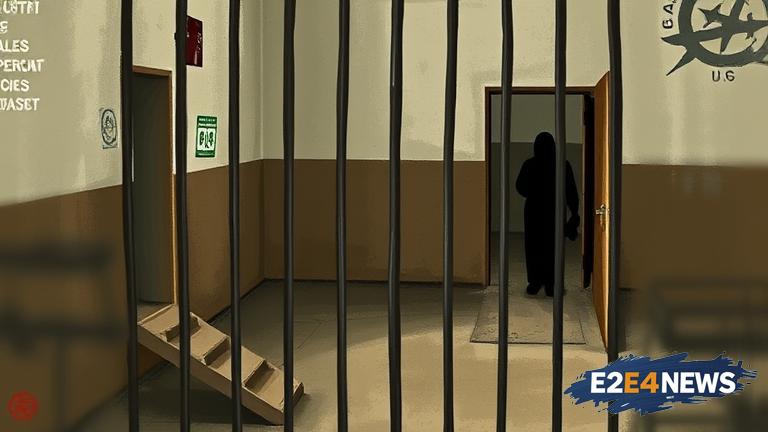The Palestinian prisoners’ issue has been a longstanding concern for human rights organizations and the international community. Despite numerous calls for their release, many Palestinian prisoners continue to languish in Israeli jails, facing harsh conditions and mistreatment. Recent reports have highlighted the dire situation of Palestinian prisoners, who are often subjected to medical neglect, solitary confinement, and other forms of abuse. The Israeli prison system has been criticized for its inhumane treatment of Palestinian prisoners, with many being denied access to basic necessities like food, water, and medical care. The situation is particularly dire for prisoners with pre-existing medical conditions, who are often denied the care they need. In addition to medical neglect, Palestinian prisoners are also subjected to solitary confinement, which can have severe psychological and physical effects. Many prisoners have reported being held in solitary confinement for extended periods, with some being denied access to natural light, fresh air, and human interaction. The use of solitary confinement as a form of punishment has been widely condemned by human rights organizations, who argue that it is a form of torture. Despite these concerns, the Israeli prison system continues to use solitary confinement as a means of controlling and punishing Palestinian prisoners. The situation of Palestinian prisoners is further complicated by the fact that many are being held without charge or trial, under a system known as administrative detention. This system allows Israeli authorities to detain individuals for extended periods without providing any evidence or due process. The use of administrative detention has been widely criticized, with many arguing that it is a form of arbitrary detention that violates international law. In recent years, there have been numerous reports of Palestinian prisoners being subjected to torture and other forms of abuse while in custody. These reports have been corroborated by human rights organizations, who have documented numerous cases of mistreatment and abuse. The international community has been slow to respond to the plight of Palestinian prisoners, with many governments failing to condemn the Israeli government’s actions. However, there are growing calls for action, with many human rights organizations and activists demanding that the Israeli government be held accountable for its treatment of Palestinian prisoners. The Palestinian prisoners’ issue is a complex and multifaceted one, with deep roots in the Israeli-Palestinian conflict. However, at its core, it is a human rights issue, with Palestinian prisoners facing mistreatment and abuse at the hands of the Israeli authorities. The situation of Palestinian prisoners is a stark reminder of the need for international action to protect human rights and prevent abuse. As the international community continues to grapple with the complexities of the Israeli-Palestinian conflict, it is essential that the plight of Palestinian prisoners is not forgotten. The Palestinian prisoners’ issue is a critical one, with far-reaching implications for the human rights and dignity of Palestinian people. It is essential that the international community takes action to address the situation of Palestinian prisoners, and to hold the Israeli government accountable for its actions. The use of administrative detention, solitary confinement, and medical neglect as forms of punishment and control is a clear violation of international law and human rights standards. The international community must take a strong stance against these practices, and demand that the Israeli government takes immediate action to address the situation of Palestinian prisoners. Furthermore, the international community must also recognize the root causes of the Palestinian prisoners’ issue, including the Israeli occupation and the lack of a just and lasting peace. Until these underlying issues are addressed, the situation of Palestinian prisoners will continue to be a major concern for human rights organizations and the international community. In conclusion, the situation of Palestinian prisoners in Israeli jails is a dire one, with many facing harsh conditions, medical neglect, and solitary confinement. The international community must take action to address this situation, and to hold the Israeli government accountable for its actions. The Palestinian prisoners’ issue is a critical one, with far-reaching implications for human rights and dignity. It is essential that the international community takes a strong stance against the mistreatment of Palestinian prisoners, and demands that the Israeli government takes immediate action to address their situation.
